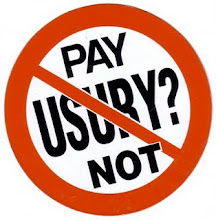Canada Hasn’t Basis To Pursue People For Income Tax

By Darren Martin
"My research into what I see as a significant upset regarding the lawfulness of the Income Tax Act and how the CRA can enforce it through the infallible and tenacious attitudes of the Nova Scotia Public Prosecution Service uncovered many disturbing facts regarding the Canadian Constitution.
At the time of the confederation movement, the provinces of Canada, Nova Scotia and New Brunswick desired to form a federal union. This union was provided for in the form of the Quebec Resolutions of 1864. The Bill drafted by the Canadian delegates at the London Conference in 1866 also provided for a federal union. The BNA Act enacted by the Imperial Parliament of Great Britain carried out neither the sprit nor the terms of the Quebec Resolutions, and consequently, Canada did not become a federal union or a Confederation but rather a United Colony with the supreme authority still under the British government.
On Dec. 11, 1931, when the Statute of Westminster was enacted it galvanized our relationship with the Monarchy. The document transferred the sovereign power from George V to the people, granting total independence, making both the office of the Governor General and Central Legislature redundant. The Queen’s role for Canada is primarily as a ceremonial head of the Commonwealth which is an informal association of countries that were formerly members of the British Empire. The Canada Act of 1982 and its schedule “B,” the Constitution Act 1982, enacted by the United Kingdom Parliament on March 29, 1982, were two more imperial statutes to the series that existed before. Since 1982, more of Canada’s Constitution is to be found in the statute book of the United Kingdom (the schedule to the Constitution Act 1982, lists 22 United Kingdom statutes and orders in council as included in the “Constitution of Canada”). The existence of the Federal Government is, in fact (de facto), but not in law (de jure). The Governor General’s own website states he is “Canada’s de facto head of state.” Sec. 15 of the CCC deals with this type of Government.
Need proof? Refer to the Federal Interpretation Act and look up the definition for Canada. It reads, “for greater certainty, includes the internal waters of Canada and the territorial sea of Canada.. The definition for province is, “a province of Canada and includes the Yukon Territory, the Northwest Territories and Nunavut.” By applying the legal maxim, the inclusion of one is the exclusion of all others, you can see lawfully Canada does not include N.S., N.B. etc. By way of the Statute of Westminster, the provinces are sovereign within their own sphere as there has been no Federation as of yet.
A section in the Income Tax Act reads, “this Act is binding on Her Majesty in the right of Canada or a province,” it only applies to the aforementioned provinces. Look up “prosecutor” in the CCC under the interpretation section. It means “Attorney General.” Now look that up, it means the “Attorney General” of that province… province having the same interpretation as the Federal Interpretation Act.
So how is it we are bullied by the CRA and we can be charged by a federal prosecutor? After the enactment of the Statute of Westminster the “Federal Government” created the corporation called THE FEDERAL GOVERNMENT OF CANADA, a LEGAL FICTION. Wouldn’t YOU have to have a LEGAL FICTION for them to charge you? As there are only three lawful provinces in Canada, there are, incidentally, corporations called THE PROVINCE OF NOVA SCOTIA etc. Look on ALL your GOVERNMENT issued identification and note the CAPITALIZATION of the name and decide for yourself, because that is the only way that this could happen." (snip) ...
NOTE: This article is originally published as a "Letter to The Editor" at this website:
http://www.ngnews.ca/Opinion/Letters-to-the-Editor/2012-03-02/article-2914404/Canada-hasn%26rsquot-basis-to-pursue-people-for-income-tax/1
NOTE: There is plenty more relevant information posted at The Untax Cyberclassroom.


0 Comments:
Post a Comment
<< Home